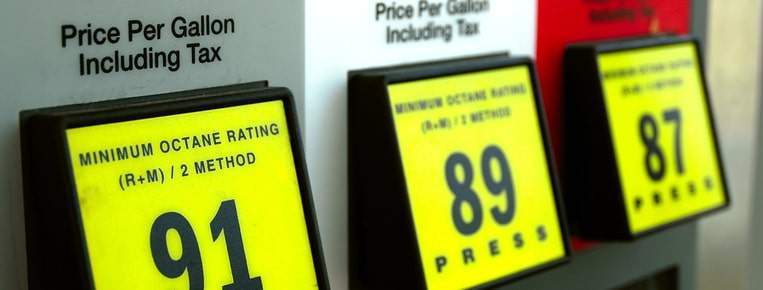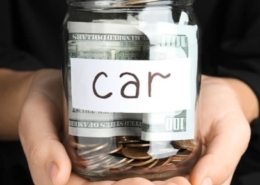What Kind of Gasoline is Best for My Car?
Different Types of Gasoline and Which One is Best?
When filling up your car’s gas tank, you may wonder what type of gasoline is the best option for your vehicle. Knowing which suits your car is essential, with many different types of gas available, including regular, mid-grade, and premium.
This article will explore the different types of gas and what factors to consider when choosing the right one for your vehicle.
What Kind of Gas Should I Put in My Car?
The best type of gasoline to use in your car depends on the make and model of your vehicle, as well as the manufacturer’s recommendations.
Generally, most cars are designed to run on regular unleaded gasoline with an octane rating of 87. However, some high-performance or luxury vehicles, such as 91 or 93 octanes, may require a higher octane rating.
Using higher octane gasoline than the manufacturer recommends is unnecessary and will not provide any benefits. It may even harm your engine or reduce fuel efficiency. On the other hand, using lower octane gasoline than recommended may cause engine knocking, damaging your engine over time.
Therefore, it’s essential to check your owner’s manual or consult your dealership to determine the appropriate type of gasoline for your specific vehicle.
Understanding the Different Types of Gasoline
Gasoline comes in three different types: regular, mid-grade, and premium. The main difference between these types is their octane rating, which measures a fuel’s ability to resist “knocking” or “pinging” during combustion.
Regular unleaded gasoline has an octane rating of 87 and is suitable for most cars. Mid-grade petrol has an octane rating of 89 and is recommended for some higher-performance engines. Premium gasoline has an octane rating of 91 or higher and is typically used in high-performance and luxury cars.
It’s important to note that using higher octane gasoline than recommended for your vehicle will not provide any benefits and may even harm your engine or reduce fuel efficiency. On the other hand, using lower octane gasoline than recommended may cause engine knocking, which can damage your engine over time.
Factors to Consider When Choosing Gasoline
When choosing the right type of gasoline for your car, there are several factors to consider:
- Your car’s manufacturer recommendations: Your car’s owner’s manual will provide information on the type of gasoline recommended for your vehicle. Following these recommendations is the best way to ensure your car runs smoothly and efficiently.
- Your car’s engine type: The engine type in your vehicle can also affect the type of gasoline you should use. High-performance engines may require higher octane gasoline to prevent engine knocking and maximize performance.
- Your driving habits: If you frequently drive at high speeds or carry heavy loads, you may need higher-octane gasoline to prevent engine knocking.
- Cost: Premium gasoline is more expensive than regular unleaded gasoline, so it’s essential to consider the price when choosing the right type of gasoline for your car.
Benefits of Using the Correct Type of Gasoline
Using the correct type of gasoline for your car can provide several benefits:
- Improved engine performance: Using the correct type of gasoline can help improve your car’s engine performance, including acceleration and power.
- Better fuel efficiency: Opting for the appropriate type of gasoline can also boost your car’s fuel efficiency, which can help you cut down on your gas expenses.
- Reduced emissions: Choosing the correct type of gasoline can aid in minimizing your car’s emissions, promoting a healthier environment.
Fuel Economy Misconceptions
Many people hold misconceptions about fuel economy that can impact their driving habits and even their car’s performance. Here are a few of the most common misconceptions about fuel economy and provide the facts to help you make informed decisions about your driving habits and vehicle maintenance.
- Myth: Bigger cars are always less fuel-efficient than smaller ones.
Fact: While it’s true that smaller cars often have better gas mileage, some larger vehicles can have surprisingly good fuel economy due to advances in technology and design. - Myth: Manual transmission cars always get better gas mileage than automatics.
Fact: With modern automatic transmissions, this is no longer the case. Some automatics can get better gas mileage than manuals. - Myth: Fuel additives can significantly improve gas mileage.
Fact: While some fuel additives may offer minor improvements in fuel efficiency, their effects are usually minimal and not worth the extra cost. - Myth: Idling your car to warm it up in cold weather improves fuel economy.
Fact: Idling your car wastes fuel and reduces fuel economy. It’s best to drive gently until the engine warms up. - Myth: Premium gasoline is always better for your car than regular gasoline.
Fact: Unless your car specifically requires premium gasoline, using it won’t provide any benefits and can harm your engine.
In Conclusion
In conclusion, selecting the appropriate type of gasoline for your vehicle is crucial to maintaining your car’s performance and extending its lifespan. Whether you have a high-performance sports car or a daily commuter, understanding the different types of gasoline available and their suitability is critical to maximizing your car’s efficiency and reducing emissions.
While regular unleaded gasoline with an octane rating of 87 is the most commonly used gasoline, it’s essential to consider factors such as your car manufacturer’s recommendations, engine type, driving habits, and cost when selecting the correct type of gasoline for your vehicle. Using higher octane gasoline than recommended for your car won’t provide any benefits. It may even harm your engine, while using lower-octane gasoline can cause engine knocking and damage over time.
Choosing the correct type of gasoline for your car can have numerous benefits. It can improve your car’s engine performance and fuel efficiency, and reduce its emissions, which is better for the environment. By following your car manufacturer’s recommendations and consulting with a trusted mechanic, you can make an informed decision about the best type of gasoline for your vehicle.
In addition to choosing the right type of gasoline, it’s also essential to maintain your car regularly to ensure optimal performance. Regular oil changes, tune-ups, and tire rotations can help keep your vehicle running smoothly and efficiently.
Choosing the right gasoline for your car is just one part of maintaining your vehicle. Considering all aspects of car maintenance, you can help ensure your vehicle runs smoothly and efficiently for years.
















